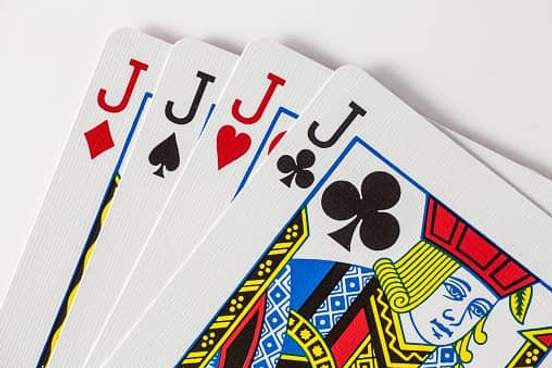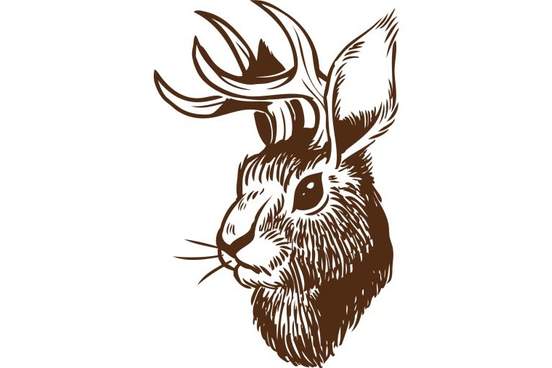
Jack
The noun jack has many varied meanings. It can, for instance, refer to a category of playing card; a device used to lift something heavy; a small opening where something connects with a wire to something else; a small six-pointed object used to play a game; in plural form, that game itself; anything at all—a use that typically appears in negative statements: you don’t know jack.
The word jack has been with us since the days of Middle English, when Jacke was used as a familiar term of address for a social inferior. Even then it was also a nickname, at the time for Johan, the Middle English version of “John.” In modern English it is historically a nickname for John (President John F. Kennedy was “Jack Kennedy” to his familiars) but in recent decades it has been commonly used as a full name by itself.

Jack-in-office
noun : an insolent fellow in authority
In Arthur Conan Doyle’s “The Adventure of the Speckled Band,” Sherlock Holmes is called “the Scotland Yard Jack-in-office” by an obstreperous visitor. And Charles Dickens has the epithet hurled upon a character in Sketches by ‘Boz’.
While one may still come across the term in current publications—it’s been spied in The Atlantic as well as The Daily Mail in the current century—jack-in-office is somewhat rare. This is clearly not, however, for lack of people to whom it may be aptly applied. We are hopeful that insolent fellows in authority will be dubbed such with regularity going forward, now that we’ve reminded everyone about this option.

Jackfruit
noun : a large tropical Asian tree (Artocarpus heterophyllus) related to the breadfruit that yields a fine-grained yellow wood and immense fruits which contain an edible pulp and nutritious seeds; also : its fruit
Unlike many jack words, jackfruit has nothing to do with Jack the name. The first part of the English word jackfruit comes from Portuguese jaca, which comes from a Malaysian word cakka.
Our friends at Encyclopedia Britannica report that jackfruit is the largest fruit to grow on a tree, and that a single jackfruit can grow to weigh about 40 pounds, which is more than the weight of your average preschooler.

Jack-of-all-Trades
noun : a person who can do passable work at various tasks : a handy versatile person
The term jack-of-all-trades has been in use for at least four centuries, which makes it about two centuries older than the now-dated terms man-of-all-work and maid-of-all-work, which refer to servants whose job it is to do general housework or work to and about the house.

Jackhammer
noun 1 : a pneumatically operated percussive rock-drilling tool usually held in the hands 2 : a device in which a tool (such as a chisel for breaking up pavements) is driven percussively by compressed air
We don’t know if Charles Brady King ever referred to his pneumatic hammer on display at the 1893 Columbian Exposition in Chicago as a jackhammer or not—current evidence dates the term jackhammer to 1912, when King had moved on to other things, like building the first of the many millions of cars to be built in Detroit—but King is the one credited with the invention.
In any event, jackhammer is significantly catchier than either “pneumatic hammer” or “pneumatically operated percussive rock-drilling tool,” so we are not surprised that the name caught on.

Jackanapes
noun 1 a : an impudent or conceited fellow b : a saucy or mischievous child 2 : monkey, ape
The history of the word jackanapes is all tied up in monkeys and a murdered duke. It comes from Jack Napis, a Middle English nickname for one William de la Pole, Duke of Suffolk from 1448-1450. The duke was a commander and statesman in the British government who for a time enjoyed power and prestige. All that came to an end when he got the blame for some serious English losses at the tail end of the Hundred Years’ War. (The blame was also serious, resulting in the murder that concluded his dukedom.)
The “Jack Napis” nickname that eventually developed into jackanapes was built on the use of Jack we mentioned above as a term of address for one deemed socially inferior; the s on the end was a common nickname element; and the api was an allusion (imagine the i as an e) to something on de la Pole’s heraldic badge (a kind of personal emblem): the image of an ape’s clog—a weight that was used with a chain to restrain a monkey.
When jackanapes was first used less than a century after the duke’s, er, conclusion, it referred to a monkey or ape; the other meanings quickly followed.

Jackalope
noun : a mythical animal that is reported chiefly from the western U.S. and is reputed to be the size of a small deer and to have the body of a jackrabbit and the horns of an antelope
Like a good myth, the word jackalope was cobbled together from existing elements. The jack is from jackrabbit, a word we define as “any of several large hares (genus Lepus) of western North America having very long ears and long hind legs.” That word gets its jack from jackass (which gets its jack from all the way back at that Middle English nickname Jacke we started with; the ass is simply a word for a donkey.) The -alope part of jackalope is from the word antelope.
Just who thought up the jackalope has been lost to history. We know only that print use of the word dates to the middle of the 20th century, and suspect that it may in part have been intended to trick Yankee lexicographers eager to discover new western terminology. We exercised restraint for a considerable amount of time, waiting until the current century to find the word fully eligible for entry.

Jack-O'-Lantern
A man with a lantern, a light on a marsh, and a Halloween pumpkin... learn the history of this 17th-century Jack.





